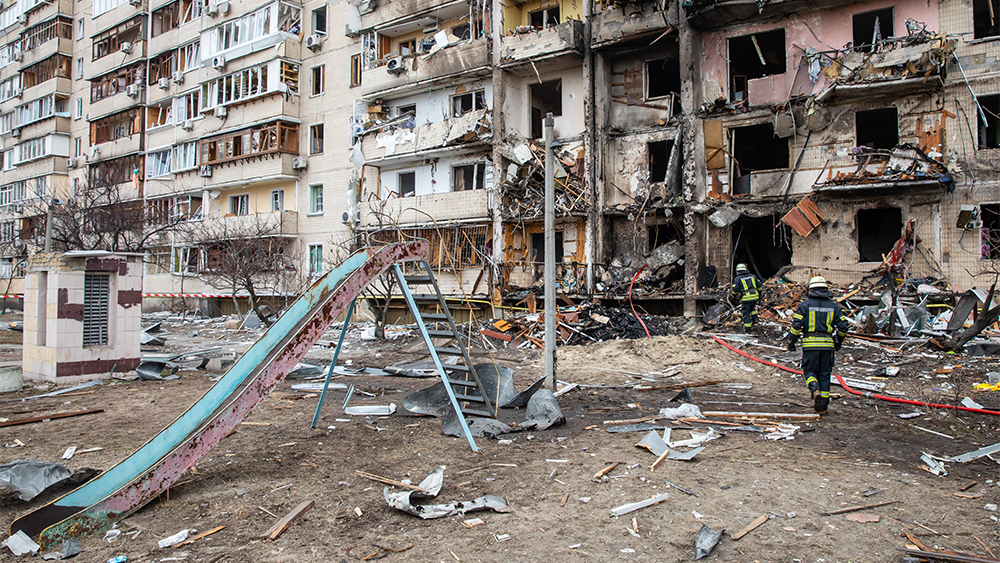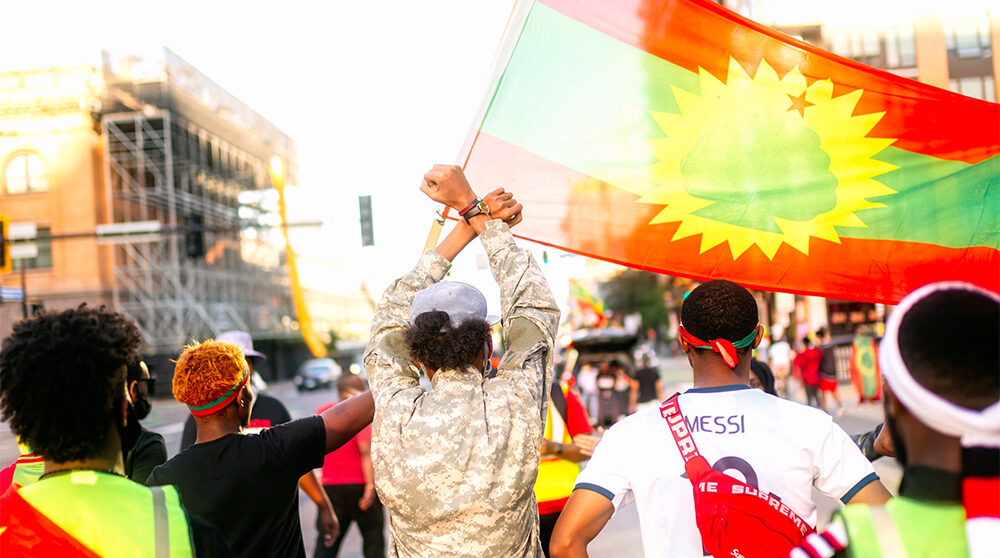As Sweden develops its new strategy for its support to Ukraine a greater amount of funding should be allocated to youth-led organisations and initiatives focusing on peacebuilding, reconciliation, and social cohesion with social entrepreneurship as a part of the solution writes Josephine Sundqvist, Läkarmissionen, Alexander Clemenson, KFUM and Sofia Breitholtz, Reach for Change.
The opinions expressed in the article are those by the authors.
The unanimous adoption of the United Nations Security Council Resolution 2250 on Youth, Peace and Security (YPS) in 2015 marked a shift among policymakers, whereby young people increasingly came to be recognised for their crucial role in peacebuilding. As expressed by Ambassador Olof Skoog at the United Nations Security Council on behalf of Sweden in 2018, YPS “underlines the contribution that young people can make to peace and security if they are actively engaged and their knowledge, strengths and enthusiasm are unlocked and taken seriously.”
Even so, the lack of institutional funding and projects targeting the rights, inclusion, and capacity building of Ukrainian youth organisations demonstrate how Sweden’s hesitation to invest in youth as agents of peace, limits a potential within development cooperation to promote long-term stability and prosperity in the country. It is time for the Swedish government to recognise the instrumental role of young people in rebuilding a peaceful, innovative, and sustainable Ukraine, and to incorporate the YPS agenda, fully and coherently, in its development cooperation strategies.
As established in Article 21 of the Universal Declaration of Human Rights, young people’s participation, including in matters of peace and security, is a human right. At stake is not solely youth’s right to participation, however, but the overall success of peacebuilding efforts – a success of which in large depends on their inclusivity. Beyond constituting a large group in society, young people possess invaluable perspectives on their communities’ realities and needs, as well as unparalleled courage and optimism. These factors have proven instrumental to democratisation processes throughout the history of Ukraine, for instance, in the strikes against the Soviet Union in 1990, the protesting of unfair election results in 2004, and the movement for EU integration in 2013-2014, all of which were led by students and youth.
Turning to the Global South, we find even more examples of peacebuilding processes hinging on the treatment of youth. In Sudan, young activists have furthered democratisation while leaders’ exclusion of youth from formal decision-making has yielded instability. Youth shape outcomes regardless of whether they are consulted; the question is how. As emphasised by several of our partners in Ukraine, young people are not only the future, but also the present.
Investing in youth in Ukraine is not about initiating a movement, it is about supporting the capacity and knowledge of the people already at the forefront of the country’s rebuilding and in implementing the YPS agenda in practice. As reiterated by one Ukrainian partner, YMCA Ukraine, “youth are the driving force for change locally and nationally”.
While the country’s humanitarian crisis rightly constitutes a top priority, it is crucial to understand youth initiatives not as isolated from, but relevant for, the humanitarian crisis, and to employ holistic peace-building techniques. For youth to value and practice peace even as they watch it be continuously violated, they need to be engaged in peacebuilding processes.
To further establish and reinforce a positive outlook on the future and prospects for prosperity for Ukrainian youth a holistic approach is needed and economic empowerment through job creation activities and trainings and entrepreneurship is also vital. We know that youth possess a rare ability to utilize digital transformation and entrepreneurship, and that programs that harness these abilities in conflict-ridden societies have proven productive.
UNICEF Burundi offers one of many successful examples of how peacebuilding competencies and entrepreneurial education can be combined to further community building, solidarity, and optimism with positive ripple effects for youth and elders alike.
At LM International, KFUM Sverige and Reach for Change, we believe in skills development such as business coaching and mentorship, self-leadership trainings, and access to seed capital as integral to inclusive economic growth and long-term stability. Equipped with the skills and mindset to become self-employed and drive innovation, Ukrainian youth possess a unique opportunity to further the Sustainable Development Goals by incorporating digitalisation and sustainability in the rebuilding of their cities; especially considering Ukraine’s remarkable competency within the information and communications technology industry.
Since the Russian full-scale invasion in 2022, Sweden has provided Ukraine with steadfast and comprehensive support. As Sweden develops its new strategy for its reform and reconstruction-oriented support to Ukraine, we urge the Swedish government to better incorporate the YPS agenda in its commitments to European peace and progress. Based on a comprehensive analysis of the current situation in Ukraine, undertaken by our coalition of Swedish and Ukrainian organisations, we recommend Sweden to engage in the following actions:
- Allocate a greater amount of funding to youth-led organisations and initiatives focusing on peacebuilding, reconciliation, and social cohesion with social entrepreneurship as a part of the solution.
- Facilitate the participation of young peacebuilders, activists, and agents of change in policy and decision-making processes by supporting programs that build their capacity.
- Promote cross-cultural understanding and shared learning experiences by encouraging partnerships between Swedish and Ukrainian youth organisations.
In addition to increasing its support for YPS activities in Ukraine, we urge Sweden to encourage mutual development cooperation with young people from neighbouring countries like Romania and Moldova. Creating a regional network of youth dedicated to establishing peaceful and secure societies is integral to the long-term stability and development of the region, as well as the larger European community.
Nothing can justify the act of aggression constituting the unlawful full-scale invasion of Ukraine, yet by utilising youth as catalysts for inclusive peacebuilding and sustainable innovation, Sweden has the opportunity to realise the rights of aid recipients, support the country’s reconstruction, and take lead on the YPS agenda. More importantly, Sweden has the opportunity to support a generation of remarkably resilient youth, as they come together to ensure access to socioeconomic needs and defend values of peace and democracy. It is an opportunity we cannot afford to miss.
Josephine Sundqvist
Secretary-General, Läkarmissionen
Alexander Clemenson
Secretary-General, KFUM Sverige
Sofia Breitholtz
CEO, Reach for Change
Read more:
|
Uppläsning av artikel
|


